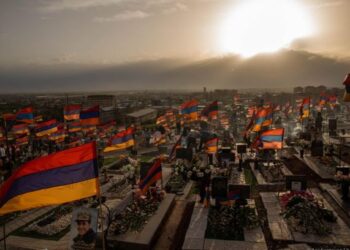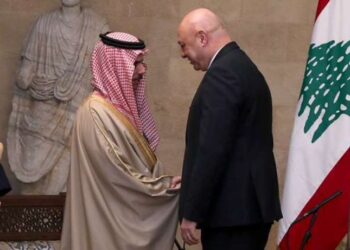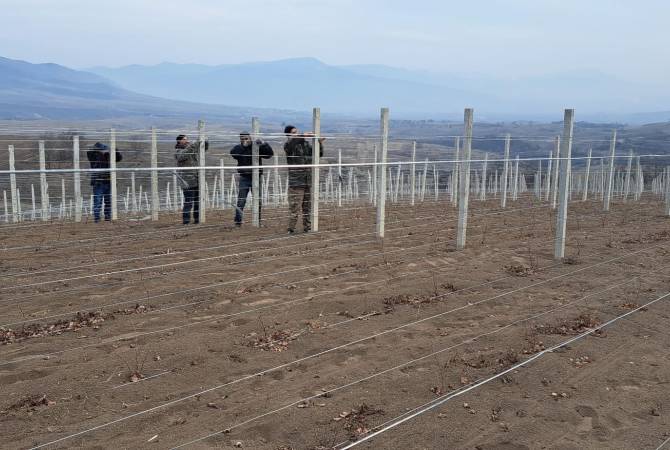By Dr. Arshavir Gundjian C.M.
It may be an understatement to say that the Armenian world is currently overwhelmed by the daily developments at the level of an existential crisis in Artsakh and Armenia. Armenians have been in a heightened state of turmoil ever since the infamous 44-day second war of Artsakh in 2020.
Their anxiety stems from the search for solutions to innumerable existential issues. Previously, they had been living for almost three decades in an unjustified and irresponsible bliss of thinking that they had not much to worry about their territorial integrity. The disastrous end of the war was a painful wakeup call for the entire nation, which includes certainly a highly dispersed, oversized diaspora.
Since the ill-fated ceasefire agreement of November 9, 2020, nearly three years have passed. Almost no opportunity has been given to the diaspora, to become seriously involved in the crises, while the authorities in Armenia, together with their Artsakh counterparts, have been struggling with, and literally dancing around, innumerable diplomatic initiatives and international meetings. There have been almost contradictory attempts for creating new alliances, and signing or promising to sign, new peace agreements, in the hope of giving Armenia and Artsakh some kind of protection from the insatiable and openly aggressive appetite of Azerbaijani President Ilham Aliyev. He seems to want to simply invade anything that still bears any trace of the Armenian national identity.
The fact is that all the traditional political and diplomatic understandings and expectations that historically Armenians had nurtured and relied on for decades or even centuries have suddenly become void, based on the realpolitik of the “new world conditions.” Thus, Armenia has had to question the value or efficiency of its traditional alliances based in the East, and take unprecedented steps towards opening itself to the West. The latter in turn has shown, at least on the surface, an unprecedented encouraging interest in the issues that Armenia faces, and to this day continues to give many signs of seemingly serious support, which Armenians certainly need to cling on until proven wrong.
Those who are at the helm of the Armenian political strategy and decision-making process have, at this point in time, the grave responsibility to evaluate the results achieved this far while following whatever strategy that they may have been following. A decision needs to be made to either continue the thus far seemingly failed strategy, or to make fundamental changes.
Such a review needs to adopt a measuring stick or a fundamental test that will serve to render the evaluation process free from emotional and romantic predetermined positions. The result of this factual evaluation must then be used as a guide to reorient and adopt new strategies and perhaps even a new decision-making process.
The purpose of this article is to propose that the litmus test to evaluate the currently implemented Armenian strategy, assuming that there indeed was a consistent one being followed, is the Lachin corridor blockade issue, including all the attempts that have been made at all levels to achieve its resolution, and its status at this point, more than 100 days since its start in December 2022.
The Lachin corridor crisis is a nonpolitical, purely humanitarian crisis, where Armenians would have expected swift and effective intervention. Beyond condemning unconditionally the Azerbaijani brutal action, international action would in addition have forced the full opening of the corridor within a matter of a few days at the most.
The sad reality is quite the opposite. The fact is that international political and humanitarian organizations at all levels are all fully aware of the criminal Azerbaijani action. Armenia submitted the ongoing crisis to the judgement of the International Court of Justice, where some fifteen nation representatives have prosecuted the case at length and reached a unanimous verdict of clear condemnation of the Azerbaijani action, and demanded, as officially as it can be, the immediate opening of the corridor for free and unimpeded passage in both directions. The European Parliament itself has officially urged Azerbaijan to do the same. In addition to all this, the representatives of the US and France, both permanent members of the UN Security Council, have condemned Aliyev and demanded that he put an immediate end to his illegal blockade. Different kinds of international observers have been dispatched to the crisis region and they all have witnessed the ongoing unjustified humanitarian drama.
Despite all of the above, the corridor still remains shamelessly blocked by Azerbaijanis under the watch of the evidently helpless yet mighty Russian peacekeepers. As a result, the humanitarian crisis at all levels in Artsakh continues now after almost four months. To add insult to injury, Aliyev remains not only completely defiant towards all the above, but goes even further to shamelessly qualify the present internationally recognized territory of the Republic of Armenia, a full member of the UN itself, as a Western Azerbaijan territory.
Aliyev’s behavior is quite openly that of an international mafia boss. The more Armenia tries to stick to a “policy of peace and appeasement,” at the cost of even remaining ambiguous concerning guarantees for Artsakh’s Armenian character, autonomy and security, the more belligerent become Aliyev’s open and aggressive declarations about his aim to even remove Armenians altogether from the map!
Thus, there is hardly any need for a debate to decide that the litmus test to evaluate the strategy followed thus far by the authorities of Armenia and Artsakh and the related effectiveness of the international community to protect us from the Azerbaijani mafioso Aliyev, shows they have simply failed completely and miserably.
As a result, Armenia’s attitude and language used in its rhetoric towards Azerbaijan and Aliyev, during all further international communications and any so-called staged negotiations, must be fundamentally changed.
Any ill-conceived expectation that an attitude of appeasement or accommodation towards Azerbaijan and Aliyev can moderate the latter’s aggressiveness and presumably prevent a new war of invasion of Armenian territories must be put aside. It must be clear to all that Aliyev and Azerbaijan are actually preparing themselves every day a bit more to invade Artsakh and Armenia in order to finish off the job that was simply interrupted in November 2020. Lately, they have been testing the resolve of anyone, be it from the East or the West, to come to the “rescue of the Armenians.” They have fully satisfied themselves that in reaction to their new aggression, voices may be raised from various quarters, but at the end, unless Armenians are capable to defend themselves, no one else will raise a finger or the barrel of a gun to help them in any shape or form.
Thus, following this infallible litmus test, Armenians, just for show, certainly ought to continue their multipronged diplomatic maneuvers with the East, the West, the South and the North. However, simultaneously they must resolutely adopt the following lines of action.
1.Armenia must relentlessly and sleeplessly develop its self-defense and combat readiness, be it in terms of acquisition or manufacture of the most effective modern arms, as well as in terms of a well-trained army that may include its entire adult male and female population. This would be exactly what any other self-respecting nation such as Israel would have done.
2.Armenia must henceforth use clear language to relentlessly defend in any and all international forums its historic and territorial rights, and debunk all the distortions of historic facts on which Azerbaijan spends enormous means and funds to inundate the media and the world opinion. Most specifically, Artsakh and Armenia must refresh the historic realities about Artsakh as an Armenian land, part of its multimillennial history, way before Azerbaijan even existed on the map barely a century ago. Artsakh’s legitimate declaration of its independence on December 10, 1991 must be clearly brought back into the political limelight, and Armenia must clearly recognize the independent republic of Artsakh. Furthermore all resources of Armenia, Artsakh and the widespread diaspora must be mobilized in order to educate the world about the historic realities of Artsakh, and hence stage a war of information to neutralize the Azerbaijani war of disinformation.
3.Armenia as a fully independent nation must use the platform it occupies in the UN to instantly inform the world every time Aliyev repeats its delirious statements about Armenia and Yerevan being part of Western Azerbaijan.”
The above proposal for a fundamental change in the posture of Armenians on the international political scene is realistic and essential but first a clear national resolve must be reached to escape the full annihilation of our nation. Otherwise, this is guaranteed to take place, in case the current meek policy of appeasement continues.
Pashinyan and the current authorities in Armenia are urged to make this clear correction in the orientation of their current failed policy. Simultaneously, they are also urged to create an atmosphere of political inclusiveness in order to enrich their ranks with all the politically experienced and constructive elements that exist in Armenia. They also need to make a genuine effort to reach out and tap the resourceful, yet unorganized enormous diaspora.
If the current authorities are unable to meet such challenge, for whatever reason, they should be requested to simply retire and allow more courageous elements to carry out this difficult yet existential enormous struggle for the survival of our nation.
The Armenian Mirror-Spectator








